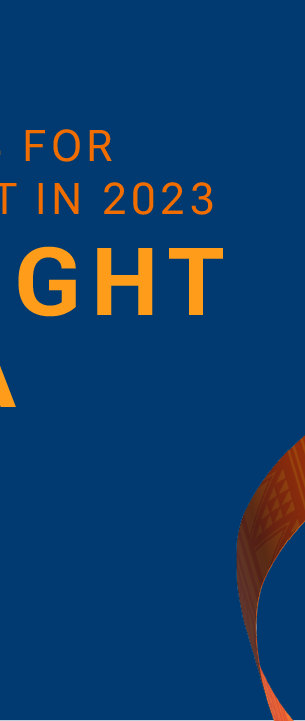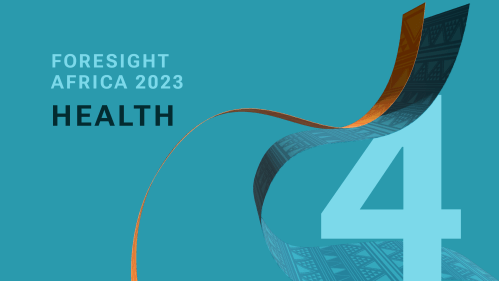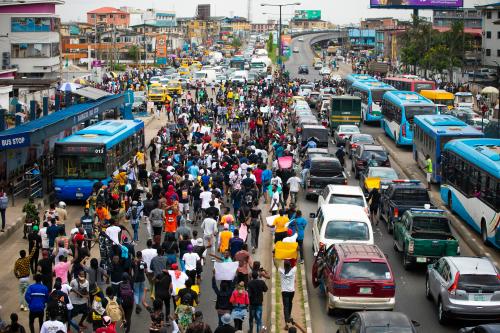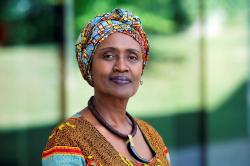Below is a viewpoint from the Foresight Africa 2023 report, which explores top priorities for the region in the coming year. Read the full chapter on health.
 Africa is not on track to end AIDS by 2030. The global crises of the COVID-19 pandemic and the war in Ukraine exacerbated intersecting inequalities—within Africa, as well as between Africa and the Global North. But there is good news: By tackling inequalities we can end AIDS. Here are four practical measures leaders can take.
Africa is not on track to end AIDS by 2030. The global crises of the COVID-19 pandemic and the war in Ukraine exacerbated intersecting inequalities—within Africa, as well as between Africa and the Global North. But there is good news: By tackling inequalities we can end AIDS. Here are four practical measures leaders can take.
Tackle inequalities faced by women and girls.
In sub-Saharan Africa, adolescent girls and young women are three times more likely to be infected with HIV than boys and men of the same age. The driving factor is inequality. Enabling girls to stay in school until they complete secondary education reduces their vulnerability to HIV infection by up to 50 percent. When we include comprehensive sexuality education and other measures for girls’ empowerment their risk is reduced even further. That is why 12 African countries have come together in the Education Plus Initiative, supported by the U.N. to make this happen. Beyond this, we must combine services for sexual and reproductive health, together with services for—preventing and responding to—sexual and gender-based violence, as well as HIV.
Tackle inequalities faced by marginalized communities.
UNAIDS’ latest analysis shows no significant decline in new infections among gay men and other men who have sex with men in sub-Saharan Africa. The evidence is clear: When you decriminalize, people will come forward for services, and when you criminalize, you push people away. In South Africa, where same-sex relationships are legal, gay men are 60 percent more likely to be living with HIV, but in Uganda where gay men are criminalized, they are 240 percent more likely. There is a growing momentum for decriminalizing same-sex relationships— as South Africa, Lesotho, Cape Verde, Mozambique, Angola, and Botswana have. It is time for all of Africa to consign harmful and colonial punitive laws to history.
Tackle inequalities in resourcing, which the global crises have exacerbated.
Every day, G-20 countries receive 136 million dollars in debt repayments from poor countries in the South. Meanwhile, in these countries, debt repayments are four times more than they spend on health, and twice what they spend on education.
Every day, G-20 countries receive 136 million dollars in debt repayments from poor countries in the South. Meanwhile, in these countries, debt repayments are four times more than they spend on health, and twice what they spend on education.
In the midst of a potential debt crisis, austerity measures, and higher inequality, some rich countries have cut back aid for global health and are considering even deeper cuts. Now is not the time to step away, it is the time to step up.
Tackle inequalities in access to medicines.
We need to get the new, long-acting antiretroviral medicines that will make it easier to treat and prevent HIV in African countries; and at the same time as they are made available in the Global North. We also need to ensure such medicines are manufactured by multiple producers affordably, especially in Africa, where the disease is concentrated. This requires funding, the reform of failing rules on intellectual property, as well as support for distributed production, so access to life-saving science and medicine are no longer dependent on the passport people hold.
Through bold action to tackle inequalities, we can end AIDS.







Commentary
Confronting global inequalities to end HIV/AIDS
March 7, 2023